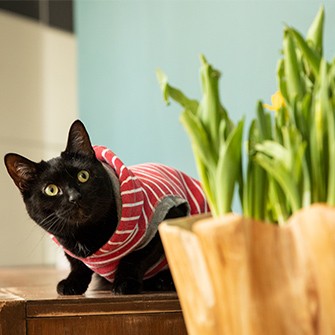Pet owners know that our furry companions are curious and sometimes eat things they shouldn’t. From household cleaners to certain human foods and plants, many substances can be toxic to pets. In an emergency, knowing who to call can make all the difference. The ASPCA Animal Poison Control Center (APCC) is a crucial resource for pet owners facing potential poisoning situations. If you suspect your pet has ingested something harmful, immediately call the ASPCA Animal Poison Control Center at (888) 426-4435. A consultation fee may apply, but this service provides expert guidance 24 hours a day, 365 days a year.
Alt text: Guide to poisonous plants for pets, helping owners identify toxic plants.
Animal poison control centers, like the ASPCA APCC, are staffed by veterinarians and toxicologists with specialized expertise in treating poisoned animals. They can quickly assess the situation, determine the toxicity of the substance, and guide you on the next steps. This might include monitoring your pet at home, inducing vomiting, or seeking immediate veterinary care. Having access to poison control can significantly improve outcomes for pets who have ingested toxins.
One of the key services poison control provides is information on a wide range of potential pet toxins. Are you unsure if a plant in your garden is safe for your dog or cat? The ASPCA offers a comprehensive guide to toxic and non-toxic plants, complete with images and details to help you identify potential dangers in your home and yard.
Alt text: List of people foods toxic to pets, informing pet owners about dangerous human foods.
Beyond plants, many human foods are also hazardous to pets. Chocolate, grapes, onions, and xylitol (a common sweetener) are just a few examples of everyday items in our kitchens that can be poisonous to dogs and cats. Poison control resources can help you understand which foods to absolutely avoid giving your pets.
Alt text: Information on poisonous household products for pets, educating owners about home hazards.
Furthermore, household products pose significant risks. Cleaning supplies, medications, pesticides, and even seemingly harmless items like batteries can cause serious illness or even death if ingested by pets. Animal poison control experts provide crucial information on the risks associated with these common household substances.
In conclusion, animal poison control is an invaluable resource for pet owners. By providing immediate assistance and expert advice, services like the ASPCA APCC can help you navigate pet poisoning emergencies and ensure the best possible outcome for your beloved animal. Save the ASPCA Animal Poison Control Center phone number, (888) 426-4435, in your contacts – it could be a lifesaver for your pet.

